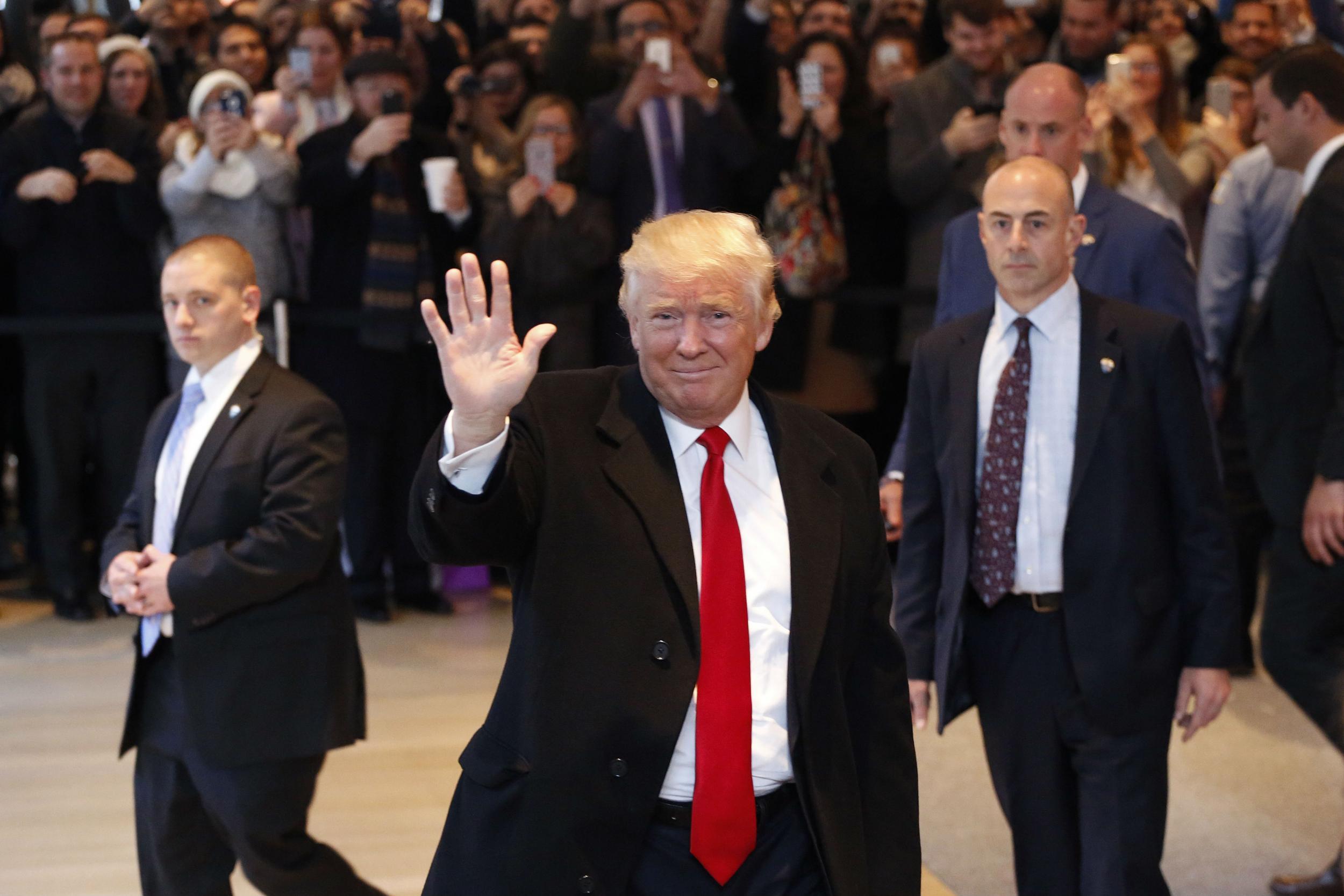Whatever you think of him, Donald Trump is right – if you knew what TPP and TTIP stood for, you'd pull out too
Many people do not understand what these trade agreements mean so let me spell it out. They promote trade liberalisation. This essentially means opening up public services to corporate takeover and limiting our ability to control banks

In a YouTube video of policy proposals released this week, President-elect Trump announced that the US would withdraw from the Trans-Pacific Partnership. This trade agreement encompasses the major economies of the Pacific Rim with the notable exclusion of China. Other policies included a hodge-podge of climate change denial through promoting fracking and coal, deregulation, infrastructure spending and measures against corporate lobbying.
There are mounting concerns about xenophobia following Trump's victory. The appointments of Breitbart's Stephen Bannon as chief strategist, the anti-immigration Jeff Sessions as attorney general, Mike Pompeo as CIA director (in favour of bulk data collection) and General Michael Flynn as national security advisor would appear to reinforce Trump's targeting of Hispanics, Muslims and other minorities.
Yet amid all this soul-searching, the key question liberals should be asking is why authoritarian nationalism is spreading across the West. The answer is relatively simple. Neoliberal globalisation has left millions behind both in the advanced economies and the global south over several decades. Wealth has been siphoned to the top. The economic fallout post-2008 has seen inequality widening, with many falling into poverty. The effects of austerity on southern Europe are a social catastrophe.
The liberal and social democratic parties previously representing working-class constituents have abandoned them and are captured by corporate power. The Democratic party under the Clintons and Obama as well as New Labour under Blair and Brown were emblematic of this process. The result has seen millions of voters turn to candidates positioning themselves as anti-establishment. Hence the success of the SNP, Ukip, Brexit and now Trump.

Free trade agreements are at the heart of the matter. Negotiations have taken place behind closed doors with corporate lobbyists. Transparency has been minimal. It is exactly this kind of undemocratic, technocratic managerialism which is prompting a backlash against elites. It is the same technocratic managerialism that saw the troika of the European Central Bank, the European Commission and the IMF impose unrelenting misery on southern Europe, rendering Greece as expendable. The troika even issued memoranda to be rubber-stamped by national parliaments.
Both the EU-US trade agreement, or Transatlantic Trade and Investment Partnership (TTIP), and the Trans-Pacific Partnership (TPP) are sold as reducing barriers to trade through harmonisation of regulations thus increasing growth. But harmonisation effectively means a race to the bottom with the lowest common denominator regulations being adopted. In fact, there are not many barriers left and the question is more of how growth is distributed. It is now clear that trickle-down economics is a myth.
Trump has stated that he is against TTIP and TPP, and may even reverse the North American Free Trade Agreement (Nafta). Many people do not understand what these trade agreements mean so let me spell it out. They promote trade liberalisation. This essentially means opening up public services to corporate takeover. They would likely make public or state ownership difficult. They would restrict the financial tools available to countries to regulate banks. They would also limit their ability to impose capital controls.
They would lock in privatisation through Investor-State Dispute Settlement clauses. This means that multinational corporations could sue governments if they took steps that harm their profits or even the future expectation of profits. This would take place through private, secretive courts rather than the normal law courts. In fact, precedents have already seen tens of countries sued by corporations for measures taken in the public interest.
The NHS is a good example. It is currently being privatised, paving the way for a private health insurance system. TTIP would mean that if a future UK government took steps to reverse this then they might well be sued. In effect, this acts as a deterrent against government actions harming corporate interests. This would apply not just to healthcare but to all public services, from education and broadcasters such as the BBC to public transport and utilities.
These trade agreements would also enforce enclosure of the commons through intellectual property rights. So drug patents would be extended to combat cheaper generic medicines. Patenting of the human genome would be enforced. Farmers might have to buy seeds from corporations. I don’t know about you, but that sounds like a dystopian world to me.
Neoliberal globalisation is not some irresistible force of nature. Economic protectionism may not exactly be progressive but the current status quo of wage stagnation and falling living standards is unsustainable. If steps are not taken to remedy the damaging effects of neoliberalism then the backlash will only intensify, likely leading to rising nationalism, fascism and global conflict.
Yousseff El-Gingihy is the author of 'How to Dismantle the NHS', published by Zero Books
Join our commenting forum
Join thought-provoking conversations, follow other Independent readers and see their replies
Comments
Bookmark popover
Removed from bookmarks